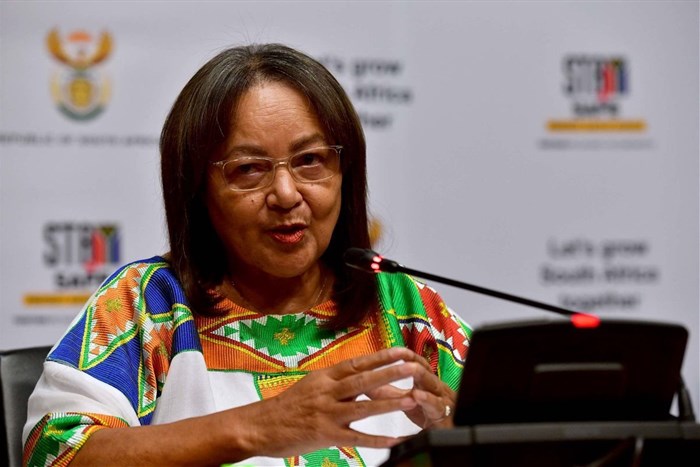
Newly appointed Minister of Tourism, Patricia De Lille noting the tourism statistics, applauded the sector for its continued commitment to recovery. The Tourism Satellite Account for 2020 statistics reflects the devastating impact of the Covid-19 pandemic.
Apart from generating revenue, the tourism industry it provides economic opportunities for women and youth and supports the development of SMMEs through enterprise development. By these means, economic inclusion is achieved by creating viable tourism businesses that create sustainable jobs and contributes to economic development. Tourism has multiple linkages with other sectors of the economy and generates significant multiplier effects."
During the Covid-19 pandemic, the tourism sector was one of the most vulnerable sectors of the economy and the impact could be seen in most of the tourism-related industries that are operating within the tourism value chain at a global and national level (UNWTO, 2022). This was evident when key indicators used to monitor the performance of the tourism sector were analysed.
Tourism statistics show that the tourism sector directly employed 459,533 persons in 2020 which was a decrease of 41,1% or 320 563 employees compared with 2019. The tourism share of total employment decreased from 4,8% in 2019 to 3,1% in 2020. Thus, in 2020, only one out of 32 employees in South Africa were working within the tourism sector.
The direct contribution of tourism to the Gross Domestic Product (GDP) decreased from R208,316m in 2019 to R123,616m in 2020 which was a decrease of 40,7%. The percentage contribution to GDP also went down from 3,7% in 2019 to 2,2% in 2020.
Summary of key indicators for 2020 compared to 2019:
• Tourism exports (inbound tourism expenditure) decreased by 70,5% to R35,855m compared to 2019
• Tourism imports (outbound tourism expenditure) decreased by 70,6% to R24,908m compared 2019;
• Domestic tourism expenditure decreased by 32,8% to R224,515m compared to 2019
• Total number of foreign visitors to the country (same day visitors and overnight visitors or tourists) went down from 14,8 million in 2019 to 3.9 million in 2020 which was a decline of about 73,6%.
• From the total number of visitors arriving in the country in 2020 (3,9 million), a total of 2,8 million were overnight visitors/tourists which was a decline of 72,6% compared to the total number of tourists recorded in 2019 (10,228,593)
• Using Stats SA domestic Tourism results, domestic tourism day and overnight trips went down from 43,2 million and 35,5 million in 2019 to 12,4 million and 7,5 million respectively in 2020.
• Although spend from domestic visitors went down in 2020, its contribution to the total spend within the country went up from 73% in 2019 to 86% in 2020. Inbound spend from foreign visitors went down from a share of 27% in 2019 to a share of 14% in 2020.
In response, the Department of Tourism, working together with the industry, developed a Tourism Sector Recovery Plan which is an integral part of South Africa’s Economic Reconstruction and Recovery Plan announced by President Cyril Ramaphosa in October 2020. The Tourism Sector Recovery Plan outlines a set of interventions to ignite the recovery of the tourism sector and to place it on a path to long-term sustainability.
Minister de Lille says of the figures: "Given the devastation of the Covid-19 pandemic across the world, the figures are not unexpected but headwinds are already being made since sectors started increasing operations in 2021 and 2022. The efforts by stakeholders in the tourism sector are notable with recovery already well underway.
"This is evident in the fact that tourist arrival numbers between January and December 2022 reached 5.7 million from 2.25 arrivals between January and December 2021. This represents an increase of 152.6% from January to December 2021."
The African continent tourist arrivals recorded an increase of over 4 million arrivals, an increase of 126.6% between January and December 2022 compared to 2021.
Arrival numbers from the Americas increased to 326 200, a 228.2% increase from 2021, arrivals from Europe increased in 2022 to over 900,000, a 314.6% increase from 2021, arrivals from Asia, Australia and Middle East increased to 223 768 arrivals in 2022, 265.9% increase from 2021. The tourist volume from the African continent was the highest but there is still more space for growth in this regard.
Minister de Lille continues: "My focus in this new role is to drive greater implementation of the Tourism Sector Recovery Plan, to drive destination development and marketing and accelerate efforts on all fronts to help the sector create more jobs. There is so much untapped potential in our country and we will be working harder to see more travellers visit our shores”.
The Tourism Sector Recovery Plan contains a set of interventions to protect and rejuvenate supply, reignite demand and strengthen enabling capability to support the sector’s recovery.
The goal is to ensure business sustainability and resilience which supports the preservation of jobs and livelihoods within the sector, facilitates the creation of new job opportunities, match demand and supply as well as strengthens transformation in the sector including empowerment of women, youth and people with disabilities in the sector.
"The pandemic has reinforced the interdependence amongst a broad range of stakeholders and the Tourism Sector Recovery Plan recognises the need to continue working together with relevant sector departments to build on efforts already undertaken to stimulate tourism as an integral part of the economic reconstruction and recovery effort," concludes Minister de Lille.

